The nature vs. nurture question has been applied to every human behavioural trait over the eons. Drilling down, we find that the fundamental abilities that lead to sales success are found in the essential constituents of the human personality. You may think that sounds like bad news for people who fear the idea that you must be born with a natural raw ability to do well in sales. But, what’s good about it is that it means the core traits for sales success are actually naturally developed in everyone.
Now you may think this article is shaping up to be some Pollyanna-ish everyone-can-do-anything pep talk that inevitably ends with, “All you have to do is want it enough, and you can do it.” So, let’s look at what we’re really talking about in terms of a list of traits required for professional selling, introduced by the renowned Harvard Business Review, and much more fully extended here. Understanding what the role entails leads to a sound conclusion about what’s required to do it well.
To understand what success in selling requires, examine the few major contextual components of the act of selling. These include 1) the prospective buyers’ interests, 2) the proper objectives of sales professionals, and 3) the mental tools salespeople need in order to serve these respective interests and objectives.
1. What are the Prospective Buyers’ Interests?
The first question is, “What do buyers need and want from salespeople?” They need and want to be told the truth, and to have someone qualified help them get the answers to their questions, so that they can make informed buying decisions. That role does not require a mysterious innate gift of persuasion.
Selling, when viewed from this perspective of helping people, is not the feat of a super-sales persona, involving lightning-fast intellectual reflexes. It’s not some special slightly magical talent one must be born with. The Harvard Business Review also offers a refreshing vantage point on the concept of helping people through selling.
Fortunately, however, we all are born with the abilities needed to sell well. Naturally, some of every individual’s sales-applicable behavioural traits are likely to be more strongly developed than others. So, you, your sales managers, and sales team members must first identify specific relevant characteristics of yours that need some strengthening, in order to develop a strong sales skill set needed to be most helpful to people through selling well.
2. What are the Proper Objectives of Salespeople?
The objectives of salespeople should transcend cycle times, churn rates and cross-sell metrics. Of course, those and others are critical measures. However, these rely on a deeper sense of objectives in the selling interaction. The only objectives in the actual act of selling should be simply to give prospective buyers what they want from a salesperson — the truth. After all, that’s what we all want in all our human interactions. In the selling context, the truth is focused on providing pertinent facts about your company’s products and services.
In the midst of the countless rundowns on what’s important in sales, and see Forbes‘ article on the nobility of selling, for a moving discussion of the higher purpose of selling is to help people. Our point here on helping is less high-flown. It’s just about helping people get the information they need to make informed decisions about buying something that can help them by meeting a need they have.
Helping people through selling is a precise fit with what prospective buyers want from salespeople, as explained in the section above. A sales professional should want, as their priority, to give their prospects all the information they need and answer all their questions, in order to help them make a decision they’ll be satisfied with.

3. What are the Mental Tools Salespeople Need for Success?
Countless successful sales professionals started from the most unlikely beginnings on the road to spectacular success in sales. Many people with previously no expectation that they could sell well have found themselves ultimately thriving in some of the world’s highest-stakes sales roles. You’ve probably heard some of the numerous stories told by famous innovators who had to learn how to sell their ideas, in order to generate success for their early inventions and innovations.
Another article by Forbes paints the picture of how even sales-shy inventors learn to sell by trial and failure. They’ve found themselves turning their focus from inventing to learning who their market is, where, when and how to get access to decision-makers, and what to say to them. They succeeded by tapping into their internal resources of their natural everyday behaviours. These are the mental tools they employed, to help other people understand what they were offering and how their products could meet their needs.
Natural Human Behaviours are the Necessary Tools for Sales.
Consider the evidence that we can gather from common observation and basic reasoning, that supports the assertion that everyone has the human abilities necessary for success in selling. Levels of these basic communications and intuitive persuasive skills vary from person to person, of course.
Inc. magazine offers a great discussion of some of the following natural abilities salespeople need. In the most general view, virtually all sales training is for the purpose of strengthening these and other basic capacities.
- Practical reasoning
- Articulating ideas
- Giving information
- Explaining details
- Desire to help others
- Regulating speech
- Using eye contact
- Communicating interpersonally
- Recognising problems
- Helping people make good decisions
- Using judgment
- Empathy
- Expressing emotions
- Managing facial expressions
- Interpreting verbal cues
- Interpreting body language
- Controlling personal demeanour
- Interpreting reactions
- Honouring commitments
- Conveying a sense of urgency
- Natural practice in persuasion
- Accomplishing objectives in discussions
- Striving to achieve goals
- Self-motivation
- Ability to Learn
- Patience
- Ambition
- Resilience
- Willingness to socially engage
- Responsible attitude
- Goal-oriented
- Willingness to face challenges
- Normal intelligence
First Fundamentals for Sales Skills Development
It’s not hard to imagine the kinds of development methods sales skills training will involve. At the entry level, emphasis will be on strengthening traits that are most helpful to you in your new selling role. Some tactics you can use to further your progress include:
- Memorise your simplified presentation.
- Roleplay your pitch, objection handling, and closing with friends and family members.
- Read sales training books and articles, and enrol in sales training courses.
- Practice interpreting body language and verbal cues in conversations.
Soon, you will master your presentation, and you’ll develop a strong sense of critical indicators. As a result, you’ll be a more skilled communicator in general and a more effective sales professional.

When You Decide You’re Ready to Sell
It always helps to get a little head start on developing your skills for any new professional role. Here, we can only offer a brief outline, but start with these basic developmental tips for success in sales:
1. Ask yourself why people should want to buy something from you.
People naturally resist cooperating when distracted by people or things they don’t like. Practice your presentation in the mirror. At the end, ask yourself if you would buy from you. If not, why not? Identify anything you think you could improve to help your presentation and your professional image.
2. Only sell something you really believe in.
Identify your real target market. Appreciate what motivates the prospective buyers in that market. Why are they likely to be interested in your product? Is your product a good value? Focus in your sales presentation on what motivated your prospect to agree to meet with you.
3. Only attempt to sell to fully qualified prospects.
A common pitfall for inexperienced salespeople is in hastily starting to try to sell to everybody. Make sure that you can actually serve a person’s needs with your product, and that they can actually purchase it if they want to do so, to avoid wasting their precious time and yours.
4. Really listen to people.
Some salespeople fixate on what they want to say next and have trouble focusing on what their prospect is saying. Have a real conversation. Practice active listening. Hear what the other person is communicating to you about his or her needs, as they pertain to your product.
5. Keep things simple.
Make your presentation as short and simple as possible. Focus it on your prospect’s needs and solutions for those. Keep in mind how the person is likely to feel after your presentation. Notice how much more receptive people are when you simplify your message.
But, I’ve Never Sold Anything.
There are readers who may still insist at this point, “I could never sell,” or, “I’m just not cut out for sales.” If you’re getting cold feet, you probably have never noticed all the selling you’re already doing in your life. For example, you persuade your spouse to do chores or spend money. You persuade your kids to pick up their clutter. You convince your boss to approve your suggestions. You persuade your coworkers to collaborate on solutions. You persuade your volunteer group to participate in your project. In similar ways, everyone else is selling to you every day too.
You’ve been selling throughout your entire life! In fact, every person must learn to sell successfully in order to live in the world of people. This means that selling is a naturally developed skill that you already have. With proper professional sales training and coaching, you can further develop the skills for a great sales career.
The Core Quality Needed for Success in Sales
There are certain qualities good salespeople have in common. For example, you can expect them to maintain an attitude of seeking professional self-improvement. They’re always looking to increase their knowledge and effectiveness. Sales pros also are also inclined to face challenges with a positive attitude. They face obstacles to success straightforwardly, seek advice, and rise to the task of problem solving.
A good salesperson does not need to be a fountain of clever quips. Just start building on your existing natural skills that all humans have, by using the self-development points discussed above, to help you establish relationships with prospective customers and find out how you can serve their best interests. Use your existing tools to lay the foundation for more advanced sales training that can eventually enable you to perform at any level of sales career and help you be more effective in managing your personal relations as well.There is actually one trait that’s required beyond all others — one quality that can’t really be developed through a formal sales training program — it’s the determination to success in sales. That’s the singular trait through which salespeople become the generators of the revenues that make a business thrive and support all stakeholders in the enterprise. So, in the end, it actually is the case after all, that to have a successful career in sales all you have to do is want it enough, and you can do it.





